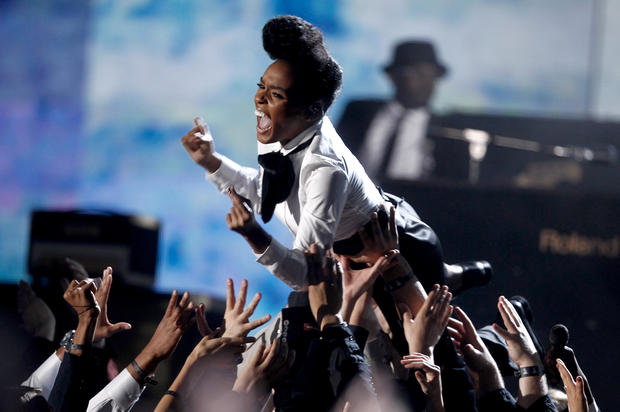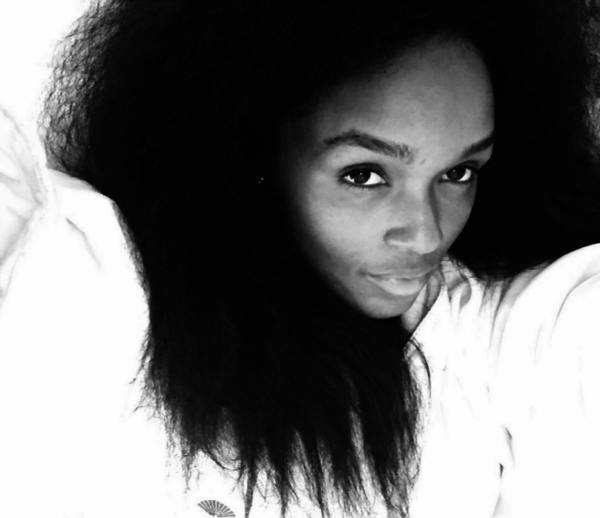Tag: janelle monae
#SpotifySaturdays
Listen to a few favorites while you clean the house today 😉
Janelle Monáe Is The 21st Century’s Time Traveler
It’s not enough to make list after list. The Turning the Tables project seeks to suggest alternatives to the traditional popular music canon, and to do more than that, too: to stimulate conversation about how hierarchies emerge and endure. This year, Turning the Tables considers how women and non-binary artists are shaping music in our moment, from the pop mainstream to the sinecures of jazz and contemporary classical music. Our list of the 200 Greatest Songs By Women+ offers a soundtrack to a new century. This series of essays takes on another task.
The 25 arguments writers make in these pieces challenge the usual definitions of influence. Some rethink the building legacies of popular artists; others celebrate those who create within subcultures, their innovations rippling outward over time. As always, women forge new pathways in sound; today, they also make waves under the surface of culture by confronting, in their music, the increased fluidity of “woman” itself. What is a woman? It’s a timeless question on the surface, but one deeply engaged with whatever historical moment in which it is asked. Our 25 Most Influential Women Musicians of the 21st Century illuminate its complexities. —Ann Powers
Janelle Monáe is many people in alternate timelines at once. She’s an archivist of right now, interpreter of back then, dreamer of one day. She imagines black people into the future in the midst of past and present threats of erasure. And after two studio EPs and three albums, the full scope of her work illuminates how the past, present and future might exist simultaneously. Who we were, who we are and who we’d like to be swirl and layer until timelines merge.
She’s Cindi Mayweather, an android on the run from an oppressive government dressed in black and white. She’s Jane, a human who holds onto her memories even as powers-that-be aim to systematically erase them. She’s a singer and actress; a queer, black woman who grew up in Kansas, City, Kan. to working class parents; an Atlanta transplant who sold her CDs and sang on Atlanta University Center library steps before signing with Bad Boy in 2008.
Monáe’s first self-released demo album The Audition (2003) was situated in both the present and the future. “Lettin’ Go,” a song about getting fired from Office Depot, appears on the same project as “Metropolis,” a four minute primer for the Afrofuturist world that Cindi Mayweather would love and live in. The universe she accelerated herself into was centuries away from the right now.
Monáe received the first of several Grammy nominations for “Many Moons,” a song from her 2007 release Metropolis: Suite I (The Chase). In Metropolis, androids are “the Other” in a dystopian reality set in 2719. The story of Metropolis revolves around Cindy Mayweather – just one of the characters Monáe would perform as, onstage and off, for much of her career.
These characters allow Monáe to sometimes speak in symbol and shadow. Timelines blur then sharpen, and visions of the future collide with present realities. “Left the city, my mama she said ‘Don’t come back home / These kids round’ killin’ each other, they lost they minds, they gone,'” she sings in Metropolis‘ “Sincerely, Jane.” Even when Monáe sings in character, the sense of something immediately true to her own life bobs into and outside of these voices.
Read more via NPR
Janelle Monáe on the meaning of “Dirty Computer” and what she promised her grandmother
For her latest project, singer, actress and activist Janelle Monáe is encouraging millennials to vote. She calls it a tribute to her grandmother, who didn’t always have that right growing up in the segregated South. Monáe is on a mission to make sure everyone with a voice has the ability to use it.
“It’s really about just making sure that our generation is activated that we’re fired up, ready to go, and we’re ready to vote,” Monáe told “CBS This Morning: Saturday” co-host Anthony Mason. “My grandmother was a sharecropper in Aberdeen, Mississippi, and she didn’t have the opportunity to vote…I just made a promise to her that when I became 18 and I had the right to exercise my power, I would do that in her honor and even though I could be in another city doing a concert, I will fly back to make sure that I vote.”
She’s got another mission, too. Her latest album “Dirty Computer,” a reference to people’s imperfections, challenges social norms and traditional concepts of a woman’s role in the world.
“One of the things that was most important to me…was to make sure I was coming from a very honest place,” Monáe said. “You know, it’s an album to really celebrate those that I felt needed to be celebrated most. Those in marginalized communities.”
Despite her massive success as both an actress and a singer, Monáe still feels marginalized herself.

Janelle Monae at the 53rd annual Grammy Awards on Sunday, Feb. 13, 2011, in Los Angeles.
“As an artist, I’ve had lots of opportunities to travel and go see the world,” she said. “But when I take off my makeup, when I take off my outfit, you know I’m still Janelle Monáe Robinson who grew up in Kansas City, Kansas, to working class parents….So being a young, black, queer woman in America, at any moment, I could have my rights taken away from me.”
The expression “Dirty Computer” is a nod to the attributes society sees as negatives. Monae finds flaws, those things that make something “dirty,” inspiring.
“Well, dirty computers are inspiring to me….People say that these dirty computers, these humans have these bugs and these viruses, the things that make them unique are looked at as negatives. But dirty computers look at their bugs and their viruses as attributes, as features, as added value to this country, to this society….it’s just saying that I’m a dirty computer, but I too am American,” Monáe said.
In 2016, Monae earned acclaim as an actress in Oscar favorites “Hidden Figures” and “Moonlight” but her true passion is music, which she first realized when she moved from Kansas to New York City to study musical theater.
“I studied for about a good year, year and a half. And then I realized that I wanted to tell my story. I wanted to sing my own songs. I had so much bubbling in here that I didn’t feel like I was able to get out,” Monáe said.
And through her songs she does share her deeply personal story. She said the response to that has been “overwhelming in the best possible way.”
“I have a fear of ‘is this gonna connect? Is this gonna resonate?’ I know that it means something to me. And to show up and go city to city, country to country and see people singing the words, sometimes louder than me, like, it’s so hard to describe that feeling,” she said. “Because it’s been a dream to have your work resonate with people’s hearts and their souls in the way that it is.”
Music critics are predicting “Dirty Computer” will be nominated for album of the year at the Grammys. As for her acting career, Monae just landed a supporting role in an upcoming biopic about Harriet Tubman.
Article via CBSNews




